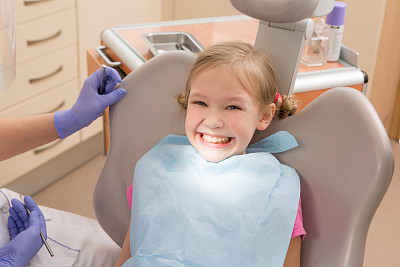Summary: Dental filling treatments are vital in restoring tooth functionality and aesthetics after decay or damage. However, proper care and precautions following the procedure are paramount to ensure optimal results and longevity of the fillings. This article will outline essential guidelines focusing on immediate post-treatment care, dietary recommendations, oral hygiene practices, and follow-up appointments. By adhering to these measures, patients can maximize the benefits of their dental treatment and maintain excellent oral health.
1. Immediate Care After the Filling Procedure

Once the dental filling procedure is completed, patients should pay careful attention to their immediate care. One of the first guidelines is to avoid eating or drinking until the anesthetic has worn off completely. This is crucial as the numbness may last for several hours, increasing the risk of biting the tongue or cheek inadvertently.
In the first 24 hours post-treatment, it is advisable to limit physical activity. Heavy exertion can lead to delayed healing. Additionally, patients should avoid consuming hot beverages or food that might jeopardize the filling’s integrity during this sensitive phase.
If any discomfort or pain arises following the filling, over-the-counter pain relievers may be beneficial. It’s important to adhere to the recommended dosage and consult a dental professional if the pain persists, as this may indicate complications needing attention.
2. Dietary Recommendations for Recovery
A well-planned diet can significantly contribute to the recovery period after receiving a dental filling. For the first few days, soft foods are recommended, such as yogurt, smoothies, or oatmeal, to prevent unnecessary pressure on the newly filled tooth. This approach allows for a smooth recovery without exerting excess force on the filling.
Patients should also steer clear of sticky or hard foods, such as chewing gum or hard candies, as these can dislodge the filling. It’s equally important to be cautious with extremely hot or cold foods, as temperature sensitivity may occur after dental treatments.
Additionally, hydration plays a key role in recovery. Patients should make sure to drink plenty of water throughout the day. This will not only keep the body hydrated but also assist in maintaining oral health, further promoting healing around the filled tooth.
3. Importance of Oral Hygiene Practices
Post-treatment oral hygiene practices are essential for ensuring the longevity of dental fillings. Patients should continue their regular brushing routine, but care must be taken to use a soft-bristled toothbrush, especially around the filled area. Gentle brushing will help to avoid irritation or damage to the filling.
Flossing is another critical aspect that should not be neglected. Using waxed dental floss can help glide smoothly between teeth without risking damage to the filling. Patients should be particularly gentle while flossing around the filled tooth to ensure they dont dislodge the filling unintentionally.
Mouthwash can also be incorporated post-treatment, but ideally, it should be alcohol-free to prevent dryness or irritation. Rinsing with a fluoride mouthwash will help strengthen surrounding teeth while keeping the filling area clean and free from bacteria.
4. Follow-Up Appointments and Checks
Regular follow-up appointments with a dentist are pivotal for monitoring the condition of dental fillings. Generally, a visit should be scheduled within the first couple of weeks after the procedure to ensure everything is healing properly. During these appointments, any irregularities or concerns can be addressed before they escalate.
Patients should also watch out for signs of filling failure, such as increased sensitivity or food trapping, which could necessitate immediate dental care. Promptly addressing any concerns can prevent further complications or the need for more extensive treatments.
Additionally, a dentist may provide personalized recommendations tailored to the patients unique dental situation during follow-up visits. These insights can be invaluable for ongoing oral health maintenance, ensuring that filled teeth remain healthy and functional over an extended period.
Summary:
To ensure optimal results after a dental filling treatment, adhering to immediate care instructions, following dietary recommendations, maintaining impeccable oral hygiene, and keeping regular check-ups with a dentist are essential. By integrating these practices into daily routines, patients can look forward to a healthy and successful recovery, enjoying the long-term benefits of their dental fillings.
This article is compiled by Vickong Dental and the content is for reference only.
Vickong Dental
Vickong Dental is a large medical group established in Hong Kong in 2008 by professors from well-known medical universities in Guangdong and Hong Kong, as well as medical doctors from key national '985' universities (including Master's supervisors and senior professors). The chain of branches brings together expert dentists with PhDs and Master's degrees from Hong Kong and Mainland China, committed to providing high-quality dental treatment.
"Vickong Dental Practices the University Motto of 'Healing and Serving Society,' with a Stable Operation for Sixteen Years. It Has Been honored with Hong Kong Enterprise Leaders's Choice,' and is a Global Trusted Implant Center for the Nobel Implant System. Recommended by Hong Kong Metro Broadcast and Guangdong Television, it Serves Customers from Over Thirty Countries and Regions, Gaining the Trust and Favor of Citizens from the Guangdong-Hong Kong-Macau Greater Bay Area and Surrounding Cities.

Thousands of customers' unanimous praise
The most recognized and highly recommended dental service by customers in the Guangdong-Hong Kong-Macau Greater Bay Area
We Ensure You Receive Detailed Care and Attention Here
Hong Kong standards, Shenzhen prices, Your Trusted English-speaking dentists

Vickong Dental Medical-Grade Instrument Disinfection Process
Vickong Dental Medical-Grade Instrument Disinfection Process

Vickong Dental Chain: A Warm and Comfortable Environment for Treatment






Appointment Hours

Q&A
Why choose Vickong Dental?
Vickong Dental practices the university motto 「Medicine to Benefit Society」, with each branch bringing together highly qualified dentists with doctoral and master’s degrees from Hong Kong and the Mainland, and has maintained seventeen years of steady operation。Recipient of 「2024 Hong Kong Enterprise Leaders Brand」, 「2025 Hong Kong Enterprise Leaders Brand」, a Nobel Biocare Global Trusted Implant Center, and a brand recommended by Metro Radio Hong Kong and Guangdong TV。
To date, we have served customers from more than thirty countries and regions,earning exceptionally high word-of-mouth recognition and trusted recommendations from residents across the Guangdong-Hong Kong-Macao Greater Bay Area and surrounding cities
We have eight major branches in Zhuhai、Shenzhen,and a consultation and service assurance center in Hong Kong,so you can book a free consultation at any time for any questions,which is very reassuring.
If I do not accept the quotation after the CT scan, will I be charged??
No! As long as the actual treatment has not started, you will not be charged any fees.
Will there be any additional charges during the treatment process?
No, there won’t be any additional charges. Before treatment begins, we will clearly explain the treatment plan and its corresponding fees. Only after the patient agrees and signs the consent form will we proceed with the dental service.
Can I pay in Hong Kong dollars?
Yes. Vickong Dental accepts payment in Hong Kong dollars. The amount will be converted based on the exchange rate of the day, and the applicable rate will be clearly communicated to you in advance.
Can I reschedule my appointment at any time?
Yes. Please contact us via **WeChat** or **WhatsApp** as early as possible, providing your original appointment time and details, along with your preferred new date and time slot for rescheduling.













